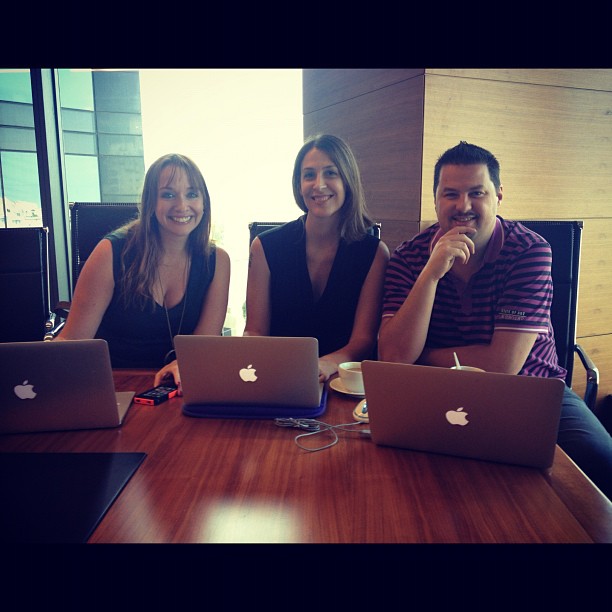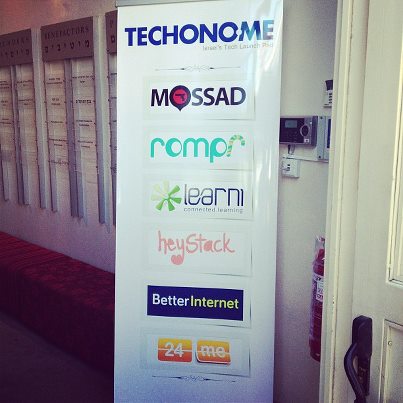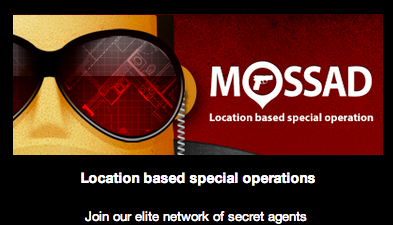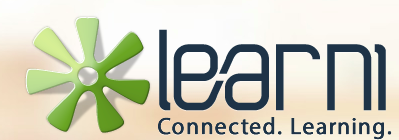
If you have been following my column here, chances are, you get it. Israeli startups are hot, and so is the level of innovation they bring!
Well, last week, I attended an event called Techonome for the fourth year in a row. The event was organized by two people who I know for years and who have a tremendous impact on the local startup scene. Orli Yakuel, a well-known blogger and UX expert has been known for her spot-on opinions, which usually take her much shorter time to formulate than the rest of us.

The second person behind Techonome was Donna Griffit, who I like to call "The Pitch Guru." Basically, since English is not the native language here, entrepreneurs need to spend more time preparing their pitch, their story, and the value they provide. Donna does that to perfection. You can read more about Donna's services here.
Before you get annoyed, there is a reason I mentioned who organized the event and went into such detail about both Orli and Donna. The knowledge and expertise both these people bring to the table had a direct impact on the amazing event that was Techonome.
A few days before the event, I met with the startups one on one along with Robin Wauters from TheNextWeb to interview them and hear what they would be launching at Techonome. I have to be honest. I expected to hear a whole lot of the words "Social network" and "Photo sharing." I was ready to be bored.

It didn't take long before I realized the level of innovation carefully selected to display their work at Techonome was in a totally different ball park.
There were six startups to present at Techonome and compete for a variety of prizes including $20,000 of Cloud storage and perks from Google.

So let's jump right in:
Mossad
The first startup I met was Mossad. Yes, as in the name of the Israeli CIA. My initial reaction was "Do you really want to call yourselves that? You sure you want the real Mossad on your back?" Putting that completely unrealistic scenario of the Mossad caring aside, we jumped right in and didn't take long for the team to completely wow me.
The Mossad is a mobile game in which location sensors, augmented reality, and other state-of-the-art technology is used. You get real life tasks that you carry out and compete with other "Mossad agents."
Well, the first thing I realized is that I am not the target audience for this. As soon as I got passed that, and got a first glimpse of the game itself, I was sold.

The game is designed beautifully and the execution is fantastic. It is on iOS for now and can be played in cities across the globe.
You can read more about the game on Kickstarter here but just imagine sitting in a restaurant and getting a notification that you are needed outside to disable a ticking bomb. You go outside and using your iPhone and augmented reality, you locate and disarm the explosive. Sounds pretty awesome and if you don't agree, then ask your kids what they think!
Next up was Rompr, a discovery engine for parents looking for activities to do with the little ones. Such a simple concept, that in its simplicity lays its brilliance. Think about it, you want to know what movie to go to? Ask on Facebook. Want to know about a local restaurant? Yelp or Foursquare. Want to ask a general question? Twitter.
But what if you are a hard-working parent who has a few hours to spare and does not want to waste them on local forums or email lists asking for recommendations. Well, Rompr is pretty much Foursquare for parents. You open the app and get real-time recommendations of places to go and things to do with the kids.
My first reaction was that they clearly needed to integrate with Foursquare and was impressed when the founders agreed and pretty much started working on that immediately.
While Rompr is, at the end of the day, "just another social network," it is one that focuses on a very specific need and audience, much like (yes, I am about to say the I word) Instagram and we all know how that ended. I am fan of Rompr, the team, and their vision.
Right now, Rompr is a website with a mobile web app and the native app is coming soon. You can read more about Rompr here.
OK, you know the scanario in which a single friend asks you who that guy/girl is your friends with on Facebook and whether they are single? Well, it happens to me all the time. Heystack streamlines that process and can quickly become the ultimate matchmaking tool.
Clearly, the Techonome audience agreed as this is the startup that ended up winning the whole competition. So why is Heystack so great?
Well, using Facebook's social graph, you are presented with friends and friends of friends who would be of interest to you, on a romantic level. You can see mutual interests, send them an ice breaker using integrated YouTube recommendations, and the icing is a native VoIP client that enables you to actually call that person without ever leaving the app. That is impressive.

Heystack is on iOS but is also available to non iPhone users via Facebook. It is a nicely designed app that has pretty much all your bases covered if you are on the dating market. Again, simple and brilliant.
The next startup I saw, 24me took me a few seconds to wrap my head around. Putting it simply, the team attempts to solve a real problem of how we get things done day to day. The app aims to be your multitasking partner and make some order in your life.
My first reaction was "Oh no, not another to-do list." In fact, my first impression intensified when I saw the UI that to me resembled a well known to do list called Any.do. Ring a bell?
But I quickly realized that while on the surface, the two interfaces share design elements, they are actually completely different.
24me is not a to do list. It integrates with thousands of institutions including banks, which means you are not only reminded that you have a bill to pay, but you can actually pay it from the app itself. Much much more than a to do list. Or as they call themselves, it is a next generation to do list.
Birthday reminders, sharing tasks, voice dictation, and much more are inlcuded in 24me. It is a very useful app at first glance and based on the traction it has already received (top 50 productivity apps in the App Store) since launch, people are loving what 24me can do for their multitasking abilities. I also love the simplicity of their website.
This was the most "problematic" startup of the bunch and I mean that as a compliment. Let me explain. As soon as I saw the name of the company/product, "Better Internet," I was extremely skeptical. These two very young founders think they know more than experts on how to make the internet better? That was my reaction and that was the reaction of the judges at Techonome.
But I was way off and so were they. You see, Better Internet targets web developers, not end users. The problem is, in the pitch, these guys don't really emphasize that. They didn't mention it to me and they didn't mention it at the event itself. That confused me, the judges, and the crowd.
So what does it do? Ever use a site regularly that was just painful on the eyes? I do. All the time. If only I was able to add my own design, buttons, and features to the site, I would send it to the friends that use that site and you know what? I would send it to the site owners too.
Better Internet does exactly that. With very basic coding knowledge, you can very quickly tweak a website and make it your own. The original site gets the traffic from your new creation, so there are no legal issues here. The publishers can only benefit.
There is also the element of A/B testing, as in creating a few versions of a site and sending it to your readers for them to vote which one they like best. Again, this process takes only a few minutes and there is no end to what you can do. Add video, buttons, different fonts, different colors, etc.
So to my initial impression and to the feedback the company got from the judges I say, this is not about the founders knowing better what's best for the internet. It is about crowd wisdom and letting your users provide valuable feedback on your product. I, for one, love this concept and I also love how ambitious it is.
It is not a question of *if* tablets will make their way into the class room, it is only a question of *when*. Learni is a company with some pretty huge names on board including Dov Moran, the man who invented the thumb drive.
Putting it really simply, Learni takes text books, converts them to digital copies in a matter of minutes and completely revolutionises the way teachers teach and students learn.
A completely interactive experience with the ability to take notes, see teachers's notes, and much more is possible in the Learni environment, but that is nothing compared to what I am about to tell you.
The teacher using Learni gets a dashboard. On this dashboard, the teacher can see student attendance, how many students are currently viewing the book being taught, and how many students are on the same page (no pun intended). But there is one more completely awesome feature that sold me on Learni...
Among the many features available in the teacher dashboard, there is one called Magnet. The teacher, in one tap on the tablet, can automatically bring all the students back to the book and the page being discussed. Talk about getting control of a classroom.

The advantages of Learni are quite obvious. More interactive education, full transparency on where each student holds as far as the curriculum, and most importantly, in a world in which teachers are losing control of the classroom, this is a great way to get it back without being too annoying.
Conclusion
As you can see, the level of the startups selected to present at Techonome was truly impressive. Each startup brought a unique product with a real technological advantage and did not just tweak other products that already exist. Originality, innovation, and understanding of the market were the three underlying themes of the event and the startups.
Kudos to all involved.